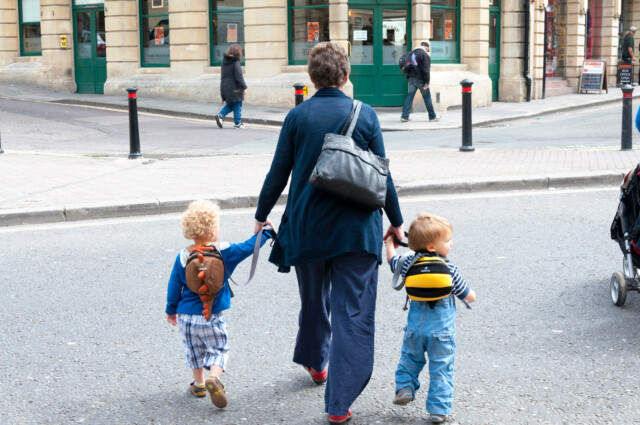AROUND 2.5million families will lose some or all of their child benefit entitlement by 2025, experts have warned.
If you or your partner earn over £50,000 you have to start paying some of the benefit back through the “high income child benefit charge”.
Hundreds of thousands of parents already pay the high income child benefit charge
If your wage goes over £60,000 you have to pay all of it back.
In last week’s budget, Chancellor Jeremy Hunt froze the £50,000 threshold at which you have to start paying the charge.
The threshold has been frozen since the policy was introduced in 2013.
But with household wages rising, it is estimated around 2.5million families will have to start paying at least some or all of their child benefit back by 2025, the Daily Mail reports.
In 2013, one million families were impacted by the high income child benefit charge, the Institute for Fiscal Studies (IFS) said.
But by 2025, 2.5million will lose some or all of their child benefit entitlement because one parent earns more than £50,000 a year.
Tom Wernham, a research economist at the IFS, said: “We estimated back in October that two million families (26% of those with children) were losing some or all of their child benefit entitlement.
“That was up from one million (13%) when the policy was introduced in January 2013, as a result of the earnings thresholds at which entitlement is lost being frozen.
“Since then, strong growth in nominal earnings while the thresholds have remained frozen will have increased that number further, and by 2025, it will be closer to 2.5million families (31% of those with children).”
Sir Steve Webb, partner at pension consultants LCP, said freezing the £50,000 threshold was dragging “more and more families who are far from wealthy” into paying the high income child benefit charge.
The former pensions minister described the move as a form of “stealth taxation” where the government doesn’t announce what it is doing but more people end up losing out.
Sir Steve warned it could have a knock-on effect on people’s state pensions too.
You can opt out of child benefit payments if you don’t want to pay the charge.
But it means you miss out on National Insurance Contributions (NICs) which you can claim on the benefit up until your child is 12.
What is the high income child benefit charge?
The high income child benefit charge is effectively a deduction on your child benefit if you earn over £50,000 a year.
You are hit with the charge if either you or your partner earns over the threshold.
The charge increases by 1% for every £100 you earn over £50,000 until you reach £60,000, at which point you have to pay all of your child benefit back.
That means if you earned £51,000 you would have 10% of your child benefit deducted.
You have to fill in a self-assessment tax return each tax year to pay the charge – you can do this on the government’s website.
But it’s your responsibility to pay the charge, and you can be fined for any late payments on top of what you already owe.
HOAR spoke to one father who was hit with a £3,000 bill after not paying for outstanding high income child benefit charges.
A Treasury spokesperson said: “We’re making the single biggest investment in childcare ever, expanding free hours to all eligible working parents with children over 9 months.
“Increasing the high income child benefit charge threshold would come at significant additional cost at a time when we’re focused on our promise to halve inflation.
“Keeping the current threshold means that the government can support the majority of families whilst ensuring stable public finances.”








